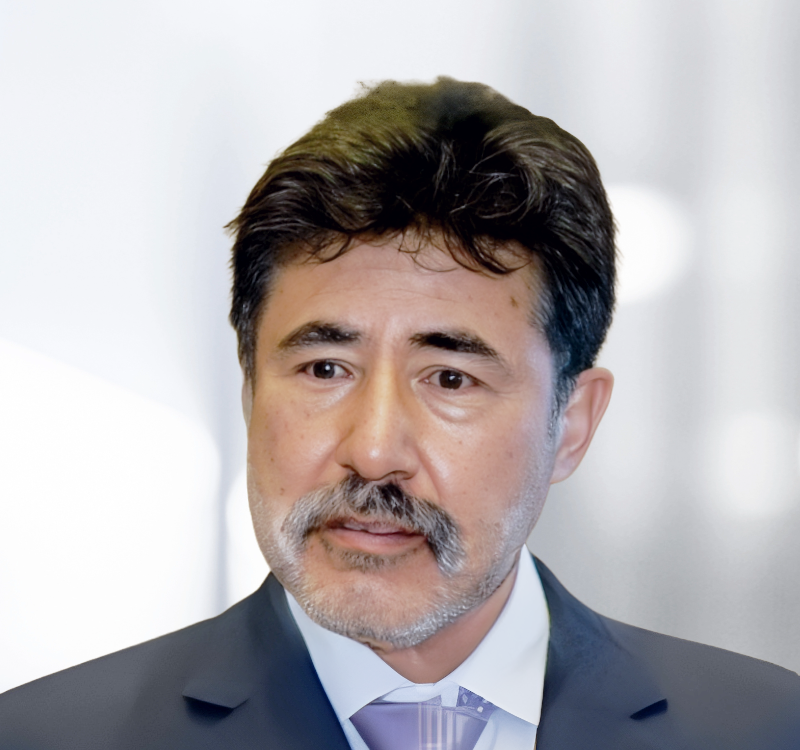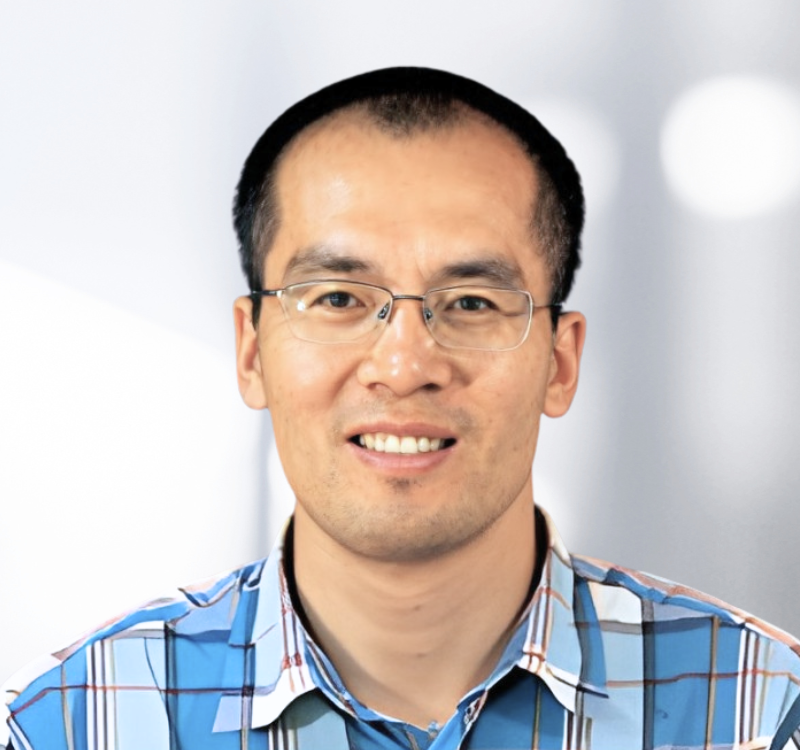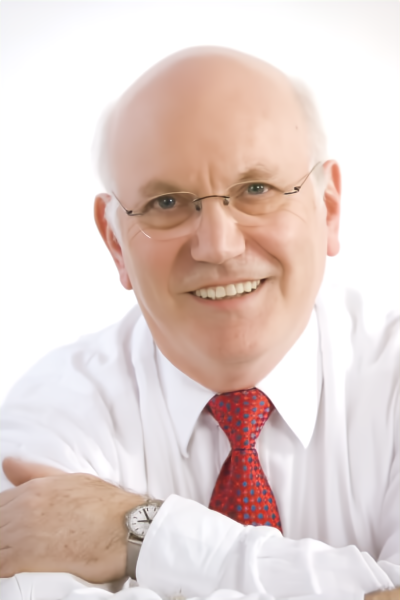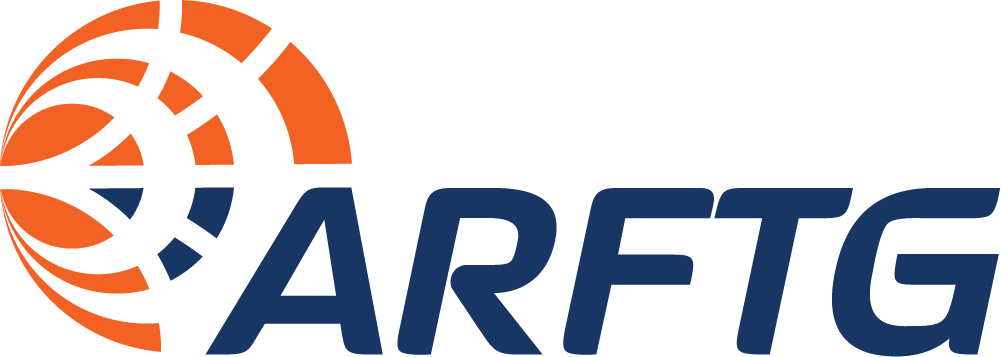
Our Student Support Programs encompass financial aid and offer opportunities for graduate students to present their research results at ARFTG conferences. The Best Student Paper Award honours outstanding student presentations at our conferences.
Our Student Support Programs encompass financial aid and offer opportunities for graduate students to present their research results at ARFTG conferences. The Best Student Paper Award honours outstanding student presentations at our conferences.
Contact us

J. Apolinar Reynoso-Hernández
Education Chair
CICESE, Mexico
Roger Pollard Fellowship

Chong Li
Sponsorship Chair
University of Glasgow, UK
ARFTG Student Sponsorship Program
Student news
- June 16, 2023
ARFTG Roger Pollard Student Fellowship Award in Microwave Measurements was presented to Xiaopeng Wang (Cornell University, Ithaca, NY, USA). ARFTG Student Fellowship program will support Xiaopeng Wang's research in “Inverted [more ...]

He didn’t think outside the box. How could he? He never saw a box.
The “ARFTG Roger Pollard Student Memorial Fellowship in Microwave Measurement” recognizes and provides financial assistance to graduate students who show promise and interest in pursuing research related to improvement of radio frequency and microwave measurement techniques.
The fellowship is named in memorial of Dr. Roger Pollard (1946-2012), in honor of his leadership in Microwave Measurement and Microwave Measurement education. Dr. Roger Pollard absolutely loved development — of engineering and people. His long list of accomplishments spans both, and perhaps foremost are the 56 successful Ph.D. candidates he supervised during his time at the University of Leeds in the United Kingdom.
His personal research interests at the University of Leeds covered an impressive range of topics: microwave network measurements, calibration and error correction, microwave and millimeter-wave circuits, large-signal and nonlinear device characterization, and terahertz technology. For many years, Leeds has performed some of the world’s best research in the terahertz range.
Within the broader engineering community, Dr. Pollard was a long-time volunteer for IMS, MTT-S, IEEE and ARFTG. He served as IEEE Vice President for Technical Activities, IEEE Board of Directors Secretary and MTT-S President. As Chair of the TAB/PAB Products Committee, Dr. Pollard provided the leadership for the creation of IEEE Xplore, which has evolved into a world-class resource for technical information.
Across all that he accomplished, Dr. Roger Pollard will be best remembered for his leadership and people skills. And, as a former colleague from HP/Agilent put it: “Perhaps the best way to think about Roger is he didn’t think outside the box. How could he? He never saw a box.”
Award
One or more $7500 gold awards and/or $5000 silver awards may be granted each year. The number to be presented will be determined by the ARFTG Executive Committee yearly based on available funding and on the number and quality of applications received.
Application process
- Award will be made to an educational institution for support of named student, but managed by a faculty advisor or supervisor. No overhead rates shall be applied by the institution.
- Award shall be used primarily for graduate student stipend. At least 2/3 of the funds is expected to be used for this purpose. If desired, an amount not to exceed 1/3 of the award funding may be used for travel and supplies (excluding capital equipment) related to the measurement related research project proposed as part of the application. Examples of appropriate travel expenditure include travel to an ARFTG conference to present measurement related research results or to a company or government laboratory that has agreed to collaborate with the work. Exceptional use of the Roger Pollard Student Fellowship for overseas travel & internship exceeding 1/3 of the budget may also be granted if properly documented and justified.
- Student shall be pursuing a full-time course of study leading to a graduate degree in engineering, physics, applied physics or computer science. If the student graduates, or for any other reason leaves the university, before funds are expended, the faculty advisor or supervisor may use the funds in support of another student in similar research pursuits.
- Award shall not be used for capital equipment purchase nor for faculty compensation (sometimes termed “release time”).
- This award may be granted in addition to any other support received by the student.
- There is no limit to the number of applications per year per institution; a maximum of one award will be made per year per institution.
- An individual student may receive this award only once.
- Proposals for the Roger Pollard Student Fellowship Awards are due by December 9th each year. Announcement of awards will be made at the Fall ARFTG conference following the deadline.
- Any publications or presentations resulting from the Roger Pollard Student fellowship grants shall be marked with the statement “This work was sponsored in part by the Roger Pollard Student Fellowship from the Automatic RF Techniques Group.”
- Within two years from the award date, reporting on the use of the fellowship funding is required in at least one of the following ways:
- Writing one or more ARFTG papers that benefited from the fellowship, or
- A short report explaining how the funds were applied towards the project goals and explaining the status of the work and student applicant. Any papers presented at other than ARFTG conferences are to be attached to this report. Lack of such reporting would make a future award endorsed by the same faculty member unlikely.
- Applicant must have a bachelor’s degree in engineering, physics, or computer science.
- Applicant must be enrolled as a full-time student in a graduate degree seeking program in engineering, physics, or computer science at a suitably qualified institution of higher learning.
- Applicant must be carrying out (or plan to carry out) research as part of his/her degree program, not just taking course work.
- Proposed research project must clearly involve RF/microwave measurements, and be supervised by a full-time faculty member. Proposed work can be a sub-set of a broader thesis or dissertation problem.
- Faculty advisor or supervisor must be an ARFTG member or the proposal must be sponsored/endorsed by an ARFTG member. For assistance in identifying an appropriate ARFTG sponsor, please contact the Fellowship Coordinator at the address below.
- the relevance of the proposed work to ARFTG,
- the originality of the proposal,
- its technical merit,
- its quality of presentation,
- the availability of measurement facilities,
- the probability of successful completion,
- the relation to the degree program pursued and
- the technical background of the applicant.
Priority will be given to proposals geared towards the development of novel measurement techniques with supportive data analysis.
For your information, here is the Evaluation Form
- The applicant should prepare a document (in pdf format) covering the following items:
- Applicant’s name, e-mail address, home address, and phone number
- Technical background of applicant Include a brief biographical sketch, including degrees already received, professional positions held and a list of publications (2 pages maximum)
- Degree program currently pursued full-time by applicant Name of university and research group, degree sought (Master or PhD in EE, Physics, …), and expected completion date
- Faculty advisor’s or supervisor’s name, e-mail address, and phone number (in case faculty advisor or supervisor is not an ARFTG member) Endorsing ARFTG member’s name, e-mail address, and phone number.
- Description of proposed research project to be funded (to be prepared by student, with assistance from faculty advisor or supervisor) State the objectives of the proposed work, include a description of the work plan, list the expected outcome, and explain how the proposed work relates to the applicant’s degree program (3 pages maximum).
- Include a brief description of laboratory facilities available to support the RF/microwave measurement work (1-page maximum).
- The applicant is responsible to ensure that his/her faculty advisor or supervisor prepares the following document and submits it prior to the deadline to the ARFTG Fellowship coordinator:
- Faculty advisor’s or supervisor’s name, e-mail address, and phone number
- Letter of reference for the applicant
- A budget explaining how the funds are intended to be allocated between stipend, supplies and travel, taking into account the ARFTG Fellowship rules
- Professional background information, including a list of up to five recent publications (2 pages maximum)
- In case the faculty advisor or supervisor is not an ARFTG member, the applicant is also responsible to obtain the endorsement from an ARFTG member, and to ask this person to write a letter of reference and submit it to the ARFTG Fellowship Coordinator prior to the deadline.
Please submit all documents by e-mail to the ARFTG Fellowship Coordinator:
General remark: Research proposals that involve collaboration with companies and/or government agencies are allowed. Particularly encouraged are projects that can form the basis for a paper to be presented at an ARFTG conference.
The ARFTG Student Sponsorship Program provides support for M.S. and Ph.D. students to help defray the expenses of attending a Winter ARFTG Conference.
There is also limited support available for the Spring Conference at the discretion of the conference general chair.
Please contact the appropriate Spring Conference Chair for details.
The sponsorship includes:
- Free ARFTG registration for the conference, ARFTG workshop, users’ forums, ARFTG lunches and breakfasts
- Hotel accommodation: up to three (3) nights prepaid room fee and taxes at the conference hotel. No other hotels are covered with the sponsorship and the student is responsible for additional nights and any other services charged to the room.
details:
- All applicants must submit an application with a personal statement.
- Applications must be submitted through supervisors.
- Each supervisor is limited to two student applicants.
- Supervisors are expected to pay for transportation to/from conferences.
- Successful applicants are expected to be present at the entire ARFTG conference and provide at least two (2) hours of service at the conference.
- Successful applicants must be the lead author and present at least one of the following at the ARFTG conference: an oral paper, an interactive paper, or a workshop presentation.
- An applicant may not be an ARFTG Fellowship recipient.
- A student may only be sponsored once.
- Supervisors should submit one file per student merging this application and other documents into one PDF file and naming it as follows: Surname_Initial_application.pdf, for example: Jane Doe application file -> Doe_j_application.pdf. All applications must be sent via email by the supervisor to the ARFTG Sponsorship Chair (sponsorship@arftg.org). The supervisor should include the student’s email in the CC: block of the submission email.
- It is the student’s responsibility to arrange for the required presentation by submitting an abstract/ summary paper to the ARFTG conference OR agreeing to present at a workshop (if approached by the workshop organizer). The workshop option should be completed before submitting an application. An abstract/summary submission should be done in parallel with the sponsorship application, and a sponsorship award is conditional on paper acceptance. If submitting an abstract, it must be submitted through the normal conference system, AND it should also be included in the sponsorship application file.
- Qualifying applications will be reviewed by the ARFTG Sponsorship Review Committee. The acceptance/rejection criteria will include but not be limited to the merits of the student’s work and its applicability to ARFTG, the benefit to the student communicated by the student’s personal statement, and the benefit to ARFTG from the student’s participation. The Review Committee reserves the right to use additional criteria in making its decision, and all decisions of the Review Committee are final.
- Because there is a limited sponsorship budget, preference may be given to students who have not attended ARFTG before.
- ARFTG reserves the right to verify the details in this application against ARFTG records and other resources, if necessary.
- Students are responsible for their own travel insurance, and international students are responsible for receiving any necessary visas.
- Statement on Coronavirus: ARFTG continues to monitor the COVID-19 outbreak. The safety and well-being of all conference participants is our top priority. We will publish corresponding information on protective measures at our conferences in due time.
Award
One or more $7500 gold awards and/or $5000 silver awards may be granted each year. The number to be presented will be determined by the ARFTG Executive Committee yearly based on available funding and on the number and quality of applications received.
Application process
- Award will be made to an educational institution for support of named student, but managed by a faculty advisor or supervisor. No overhead rates shall be applied by the institution.
- Award shall be used primarily for graduate student stipend. At least 2/3 of the funds is expected to be used for this purpose. If desired, an amount not to exceed 1/3 of the award funding may be used for travel and supplies (excluding capital equipment) related to the measurement related research project proposed as part of the application. Examples of appropriate travel expenditure include travel to an ARFTG conference to present measurement related research results or to a company or government laboratory that has agreed to collaborate with the work. Exceptional use of the Roger Pollard Student Fellowship for overseas travel & internship exceeding 1/3 of the budget may also be granted if properly documented and justified.
- Student shall be pursuing a full-time course of study leading to a graduate degree in engineering, physics, applied physics or computer science. If the student graduates, or for any other reason leaves the university, before funds are expended, the faculty advisor or supervisor may use the funds in support of another student in similar research pursuits.
- Award shall not be used for capital equipment purchase nor for faculty compensation (sometimes termed “release time”).
- This award may be granted in addition to any other support received by the student.
- There is no limit to the number of applications per year per institution; a maximum of one award will be made per year per institution.
- An individual student may receive this award only once.
- Proposals for the Roger Pollard Student Fellowship Awards are due by December 9th each year. Announcement of awards will be made at the Fall ARFTG conference following the deadline.
- Any publications or presentations resulting from the Roger Pollard Student fellowship grants shall be marked with the statement “This work was sponsored in part by the Roger Pollard Student Fellowship from the Automatic RF Techniques Group.”
- Within two years from the award date, reporting on the use of the fellowship funding is required in at least one of the following ways:
- Writing one or more ARFTG papers that benefited from the fellowship, or
- A short report explaining how the funds were applied towards the project goals and explaining the status of the work and student applicant. Any papers presented at other than ARFTG conferences are to be attached to this report. Lack of such reporting would make a future award endorsed by the same faculty member unlikely.
- Applicant must have a bachelor’s degree in engineering, physics, or computer science.
- Applicant must be enrolled as a full-time student in a graduate degree seeking program in engineering, physics, or computer science at a suitably qualified institution of higher learning.
- Applicant must be carrying out (or plan to carry out) research as part of his/her degree program, not just taking course work.
- Proposed research project must clearly involve RF/microwave measurements, and be supervised by a full-time faculty member. Proposed work can be a sub-set of a broader thesis or dissertation problem.
- Faculty advisor or supervisor must be an ARFTG member or the proposal must be sponsored/endorsed by an ARFTG member. For assistance in identifying an appropriate ARFTG sponsor, please contact the Fellowship Coordinator at the address below.
- the relevance of the proposed work to ARFTG,
- the originality of the proposal,
- its technical merit,
- its quality of presentation,
- the availability of measurement facilities,
- the probability of successful completion,
- the relation to the degree program pursued and
- the technical background of the applicant.
Priority will be given to proposals geared towards the development of novel measurement techniques with supportive data analysis.
For your information, here is the Evaluation Form
- The applicant should prepare a document (in pdf format) covering the following items:
- Applicant’s name, e-mail address, home address, and phone number
- Technical background of applicant Include a brief biographical sketch, including degrees already received, professional positions held and a list of publications (2 pages maximum)
- Degree program currently pursued full-time by applicant Name of university and research group, degree sought (Master or PhD in EE, Physics, …), and expected completion date
- Faculty advisor’s or supervisor’s name, e-mail address, and phone number (in case faculty advisor or supervisor is not an ARFTG member) Endorsing ARFTG member’s name, e-mail address, and phone number.
- Description of proposed research project to be funded (to be prepared by student, with assistance from faculty advisor or supervisor) State the objectives of the proposed work, include a description of the work plan, list the expected outcome, and explain how the proposed work relates to the applicant’s degree program (3 pages maximum).
- Include a brief description of laboratory facilities available to support the RF/microwave measurement work (1-page maximum).
- The applicant is responsible to ensure that his/her faculty advisor or supervisor prepares the following document and submits it prior to the deadline to the ARFTG Fellowship coordinator:
- Faculty advisor’s or supervisor’s name, e-mail address, and phone number
- Letter of reference for the applicant
- A budget explaining how the funds are intended to be allocated between stipend, supplies and travel, taking into account the ARFTG Fellowship rules
- Professional background information, including a list of up to five recent publications (2 pages maximum)
- In case the faculty advisor or supervisor is not an ARFTG member, the applicant is also responsible to obtain the endorsement from an ARFTG member, and to ask this person to write a letter of reference and submit it to the ARFTG Fellowship Coordinator prior to the deadline.
Please submit all documents by e-mail to the ARFTG Fellowship Coordinator:
General remark: Research proposals that involve collaboration with companies and/or government agencies are allowed. Particularly encouraged are projects that can form the basis for a paper to be presented at an ARFTG conference.

Roger Pollard Fellowship
The “ARFTG Roger Pollard Student Memorial Fellowship in Microwave Measurement” recognizes and provides financial assistance to graduate students who show promise and interest in pursuing research related to improvement of radio frequency and microwave measurement techniques.
The fellowship is named in memorial of Dr. Roger Pollard (1946-2012), in honor of his leadership in Microwave Measurement and Microwave Measurement education. Dr. Roger Pollard absolutely loved development — of engineering and people. His long list of accomplishments spans both, and perhaps foremost are the 56 successful Ph.D. candidates he supervised during his time at the University of Leeds in the United Kingdom.
His personal research interests at the University of Leeds covered an impressive range of topics: microwave network measurements, calibration and error correction, microwave and millimeter-wave circuits, large-signal and nonlinear device characterization, and terahertz technology. For many years, Leeds has performed some of the world’s best research in the terahertz range.
Within the broader engineering community, Dr. Pollard was a long-time volunteer for IMS, MTT-S, IEEE and ARFTG. He served as IEEE Vice President for Technical Activities, IEEE Board of Directors Secretary and MTT-S President. As Chair of the TAB/PAB Products Committee, Dr. Pollard provided the leadership for the creation of IEEE Xplore, which has evolved into a world-class resource for technical information.
Across all that he accomplished, Dr. Roger Pollard will be best remembered for his leadership and people skills. And, as a former colleague from HP/Agilent put it: “Perhaps the best way to think about Roger is he didn’t think outside the box. How could he? He never saw a box.”
ARFTG Student Sponsorship Program
The ARFTG Student Sponsorship Program provides support for M.S. and Ph.D. students to help defray the expenses of attending a Winter ARFTG Conference.
There is also limited support available for the Spring Conference at the discretion of the conference general chair. Please contact the appropriate Spring Conference Chair for details.
The sponsorship includes:
- Free ARFTG registration for the conference, ARFTG workshop, users’ forums, ARFTG lunches and breakfasts
- Hotel accommodation: up to three (3) nights prepaid room fee and taxes at the conference hotel. No other hotels are covered with the sponsorship and the student is responsible for additional nights and any other services charged to the room.
Details:
- All applicants must submit an application with a personal statement.
- Applications must be submitted through supervisors.
- Each supervisor is limited to two student applicants.
- Supervisors are expected to pay for transportation to/from conferences.
- Successful applicants are expected to be present at the entire ARFTG conference and provide at least two (2) hours of service at the conference.
- Successful applicants must be the lead author and present at least one of the following at the ARFTG conference: an oral paper, an interactive paper, or a workshop presentation.
- An applicant may not be an ARFTG Fellowship recipient.
- A student may only be sponsored once.
- Supervisors should submit one file per student merging this application and other documents into one PDF file and naming it as follows: Surname_Initial_application.pdf, for example: Jane Doe application file -> Doe_j_application.pdf. All applications must be sent via email by the supervisor to the ARFTG Sponsorship Chair (sponsorship@arftg.org). The supervisor should include the student’s email in the CC: block of the submission email.
- It is the student’s responsibility to arrange for the required presentation by submitting an abstract/ summary paper to the ARFTG conference OR agreeing to present at a workshop (if approached by the workshop organizer). The workshop option should be completed before submitting an application. An abstract/summary submission should be done in parallel with the sponsorship application, and a sponsorship award is conditional on paper acceptance. If submitting an abstract, it must be submitted through the normal conference system, AND it should also be included in the sponsorship application file.
- Qualifying applications will be reviewed by the ARFTG Sponsorship Review Committee. The acceptance/rejection criteria will include but not be limited to the merits of the student’s work and its applicability to ARFTG, the benefit to the student communicated by the student’s personal statement, and the benefit to ARFTG from the student’s participation. The Review Committee reserves the right to use additional criteria in making its decision, and all decisions of the Review Committee are final.
- Because there is a limited sponsorship budget, preference may be given to students who have not attended ARFTG before.
- ARFTG reserves the right to verify the details in this application against ARFTG records and other resources, if necessary.
- Students are responsible for their own travel insurance, and international students are responsible for receiving any necessary visas.
- Statement on Coronavirus: ARFTG continues to monitor the COVID-19 outbreak. We will publish corresponding information on protective measures at our conferences in due time.
